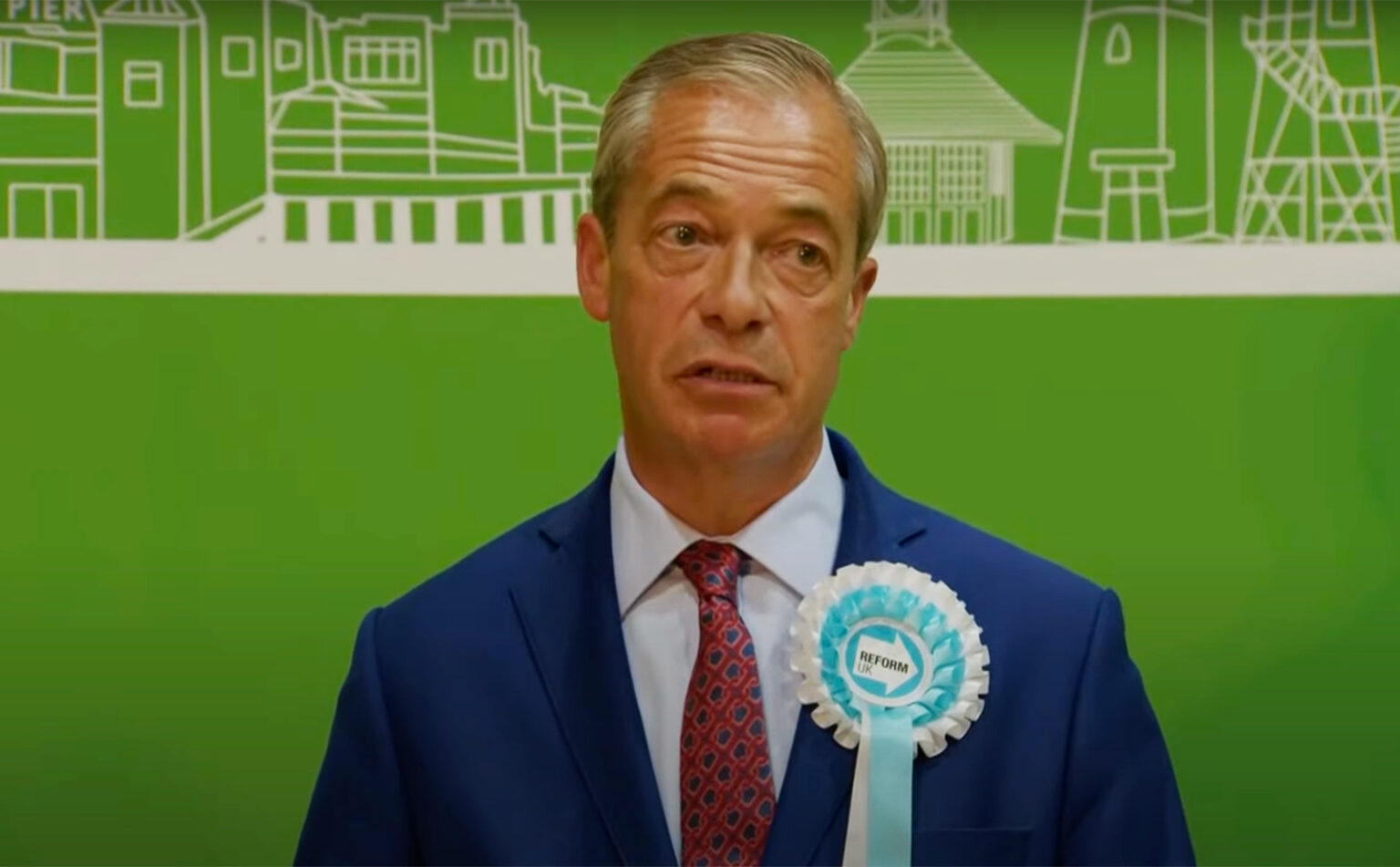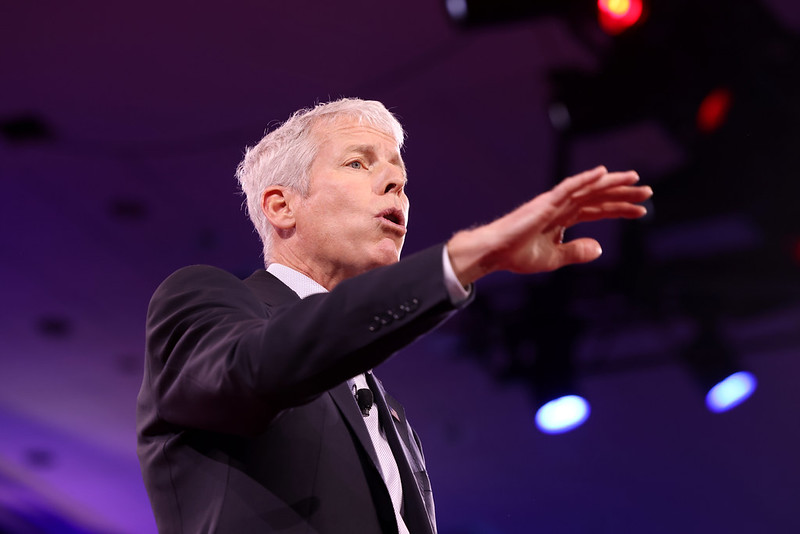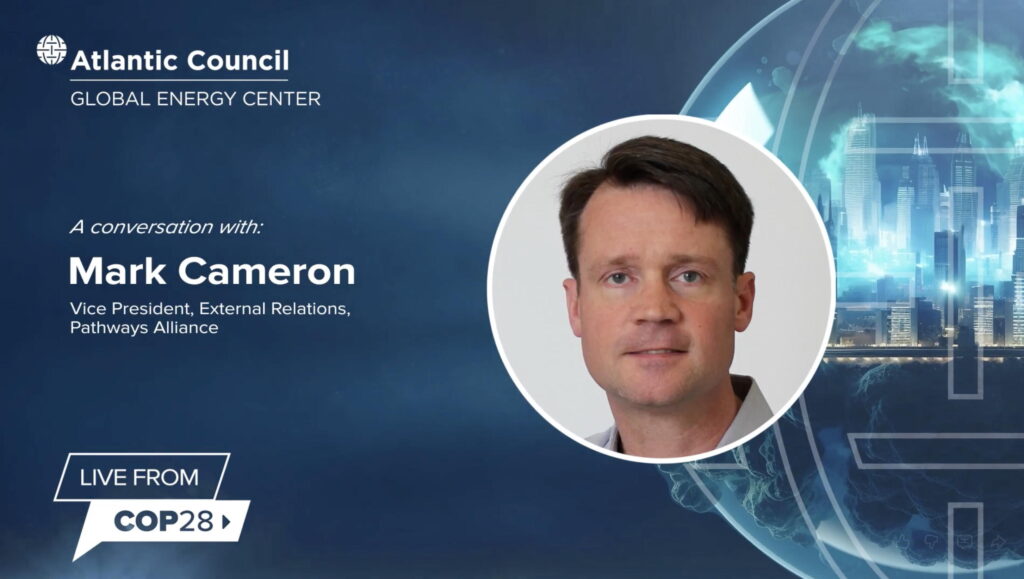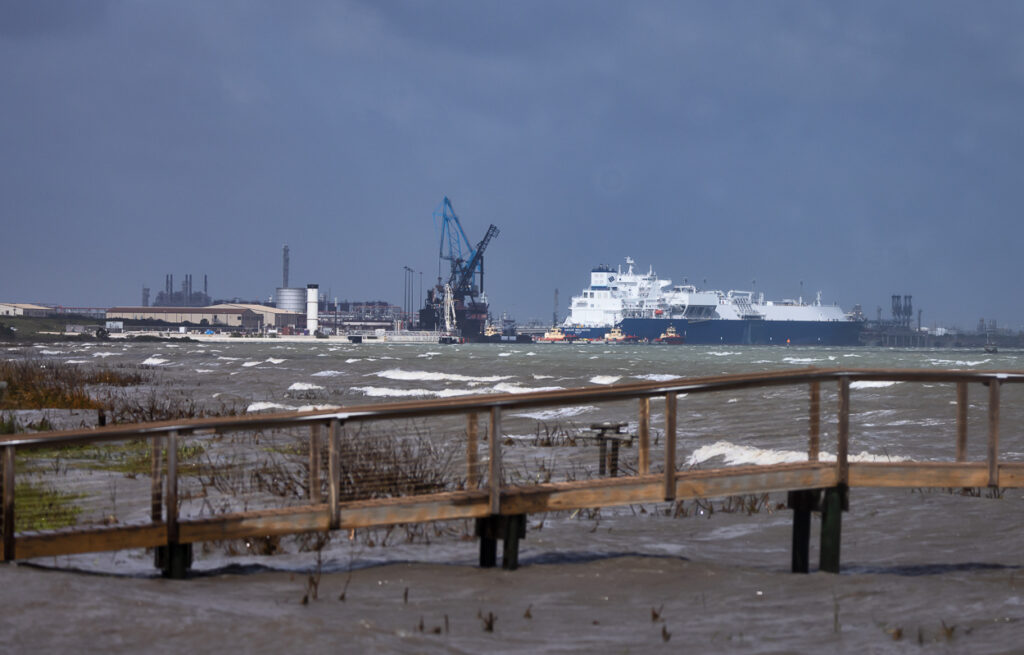Reform UK leader Nigel Farage is at odds with his own constituents over the issue of climate change, according to new polling.
A majority (68 percent) of voters in Clacton, Essex, are concerned about the effects of rising temperatures, according to a poll by More in Common, and the think tank E3G.
Clacton voters are even more concerned about climate change than the national average, with 65 percent of people across the UK saying they are worried about the issue.
By contrast, local MP Farage has denied climate science and has called for the UK’s 2050 net zero emissions target to be scrapped.
The poll surveyed 15,000 people across the country in the week of the 2024 general election, held on 4 July, and 50,000 people during the course of the campaign as a whole.
A majority of people in every UK constituency told pollsters that they are worried about climate change.
As DeSmog has reported, coastal Clacton is particularly at risk from the consequences of rising temperatures, including heavier rainfall and rising sea levels. Mapping from the science-based visualisation platform Climate Central suggests that substantial parts of the constituency will be at risk of yearly flooding even by 2030.
The international journal Oceans and Coastal Management also produced a study in 2022 suggesting that the Tendring area, which encompasses Clacton, is exposed to sea level rises – potentially affecting hundreds of homes.
The study’s lead author Paul Sayers, an engineering consultant who works with the University of East Anglia’s Tyndall Centre, said: “Significant sea level rise is now inevitable. We need a serious national debate about the scale of the threat.”
The Environment Agency last year upgraded Clacton’s flood defences as part of a £10 million project to protect more than 3,000 properties and businesses from “climate change and sea level rise”.
Adrian Ramsay MP, co-leader of the Green Party, told DeSmog: “Nigel Farage’s climate denial is clearly out of step with the majority of his constituents. By seeking to block climate action, Farage is putting at risk the safe and secure future that the good people of Clacton clearly want for their children and grandchildren.
“However, none of this should come as any surprise. While people consistently rate the climate crisis as one of their top concerns, Reform UK has received more than £2.3 million from climate science deniers, and oil and gas interests since December 2019.
“It seems that Nigel Farage is putting the business interests of his party above the security of the people he was elected to serve.”
UK Unity on Climate Change
The new polling from More in Common and E3G shows that people across the UK are unified in their concern about climate change.
Despite the party’s increasingly antagonistic stance towards net zero, a clear majority (61 percent) of 2024 Conservative voters said they are worried about climate change, matched by 76 percent of Labour voters.
Even among Reform voters, a larger proportion (44 percent) say they are worried about climate change than are not (35 percent).
“Rishi Sunak’s attempt to turn climate change into a culture war issue, stoking division to generate votes, was a spectacular failure,” Ed Matthew, campaigns director at E3G, told DeSmog.
“It was one of the greatest strategic political blunders of any Conservative administration in the last 14 years. The message to British politicians is clear: if you fail to take robust action on one of the biggest threats this country faces then you will face electoral oblivion.”
Labour’s flagship climate policy during its first month in office has been the creation of Great British Energy – a state-owned company that will own and invest in renewable energy sources.
Overall, 73 percent of those polled said that Great British Energy will be good for the country, including 59 percent of Reform voters.
In fact, Farage’s opposition to emissions reductions seems to be making voters more inclined to support net zero. More than a third of people (34 percent) support scrapping the net zero target, while 36 percent are opposed, when Farage is not explicitly mentioned as an advocate of the idea. However, when Farage is referenced, the proportion of people in favour of ditching net zero falls to 28 percent, with 44 percent opposed to the idea.
Ultimately, however, few people chose to vote for Reform in July due to Farage’s stance on net zero. Only four percent of people said that they voted for Reform due to its policies on the environment (they could pick three options), compared to 72 percent who selected immigration.
Reform was approached for comment.
Farage’s Climate Denial
The Clacton MP has long been a vocal opponent of climate action and a critic of climate science.
When he was the leader of the UK Independence Party (UKIP), the party’s 2015 and 2017 election manifestos pledged to rip up green measures, repeal the UK’s Climate Change Act, withdraw from the 2015 Paris Agreement – the flagship deal to tackle global emissions – and support fossil fuel extraction.
These policies reflected Farage’s personal views on climate action. In 2015, he told the libertarian website Spiked: “I think wind energy is the biggest collective economic insanity I’ve seen in my entire life. I’ve never seen anything more stupid, more illogical, or more irrational.”
Farage is a presenter on GB News, the right-wing broadcaster that has regularly provided a platform to climate science denial since it launched in June 2021.
Speaking on GB News in August 2021, Farage said that he was “very much an environmentalist” and that he couldn’t “abide things like plastics in our seas, pollution in our rivers.” However, on the issue of climate change, he added: “What annoys me though, is this complete obsession with carbon dioxide almost to the exclusion of everything else, the alarmism that comes with it, based on dodgy predictions and science.”
The world’s foremost climate science body, the UN’s Intergovernmental Panel on Climate Change (IPCC), has stated it is “unequivocal that human influence has warmed the atmosphere, ocean and land”, while scientists at NASA have found that the last 10 years were the hottest on record.
The IPCC has also stated that carbon dioxide “is responsible for most of global warming” since the late 19th century, which has increased the “severity and frequency of weather and climate extremes, like heat waves, heavy rains, and drought”.
Farage has also been a vocal critic of net zero policies. He has claimed that the UK’s 2050 target is an “act of self harm” and has called for it to be scrapped.
He has said: “It will not bring economic benefits. It will make everybody a whole lot poorer. And yet the lemmings in Parliament are taking us towards an economic cliff,” adding: “I can’t think of an issue on which the public and politicians are more divided.”
In reality, the UK’s green sectors are already substantial and growing. The net zero economy grew nine percent in 2023 to £74 billion – equivalent to 3.8 percent of the total UK economy, and supported more than 765,000 jobs.
Of the £2.5 million that Reform UK received in donations between the 2019 election and the start of the 2024 campaign, around 92 percent (£2.3 million) was given by fossil fuel interests, polluting industries, or climate science deniers.
Subscribe to our newsletter
Stay up to date with DeSmog news and alerts






